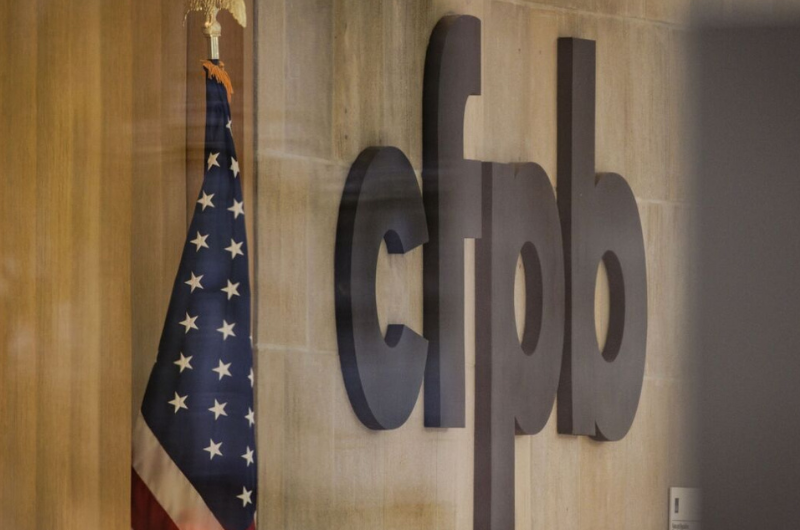


The CFPB has been given expansive authority by Congress under the Dodd-Frank Act to implement and enforce various consumer protection laws which were previously overseen by several different agencies. This includes implementing laws (by issuing regulations) governing banking, credit cards, mortgage lending and student loans that affect all financial institutions and exercising direct enforcement authority over financial institutions with more than ten billion in assets by conducting investigations, initiating civil and administrative proceedings, and assessing civil penalties. However, the constitutionality of the CFPB was recently challenged in the case of Consumer Financial Protections Bureau v. Community Financial Servicers Assn. of America, LTD. The outcome of this case held the potential for all of CFPB’s regulations to effectually be undone. Though the lower courts were divided in their rulings, on May 16, 2024, the Supreme Court published their opinion, finding the CFPB not unconstitutional.
Background
The Appropriations Clause states that “[n]o Money shall be drawn from the Treasury unless it has been appropriated by an act of Congress.” For there to be appropriation, two things must be established: a law that authorizes expenditures from a specified source of public money, and a designated purpose for that money. If either of those two elements are not satisfied there is no appropriation, and money from the US Treasury cannot be used for funding.
Unlike other federal agencies who need to request renewed funding from Congress each year, Congress allows the CFPB to take from the Federal Reserve System “the amount determined by the [Bureau’s] Director to be reasonably necessary to carry out” its duties, subject only to a statutory cap.
Arguments From the Parties
Both parties agreed that the CFPB’s funding needed to comply with the Appropriations Act, since the CFPB drew money from the Federal Reserve System. The Community Financial Services Association of America, LTD (Associations) argued that, among other things, the CFPB took federal government money without an appropriations act, in violation of the Appropriations Clause. They claimed that the CFPB’s “funding mechanism usurps Congress’s role in the appropriation of federal funds” by allowing it to take federal money without identifying precisely how much funding they would receive and what the funds would be used for. The CFPB, however, argued that there was no Appropriations Clause issue because the statute specifically authorized the disbursement of Federal Reserve System’s funds to carry out its duties, as long as they stayed below the statutory cap.
Prior Rulings of Lower Courts
The District Court was the first to rule that the CFPB was not unconstitutional. Their reasoning was that the “Appropriations Clause ‘mean[t] simply that no money [could] be paid out of the Treasury unless it [had] been appropriated by an act of Congress.’” Because the statute authorized the disbursement of money up to a certain cap for the CFPB to carry out its duties, the District Court found that there was no Appropriations Clause issue.
The United States Court of Appeals for the Fifth Circuit reversed the District Court’s ruling. They stated that the Appropriations Clause “[did] more than reinforce Congress’s power over fiscal matters,” but it also obligated Congress to use their authority “to maintain the boundaries between the branches”. Therefore, the Court of Appeals concluded, appropriation necessitates that there also be some specificity in the statute to satisfy the original aim and purpose of the Appropriation Clause.
Supreme Court Ruling
The Supreme Court held that appropriations only needed to “identify a source of public funds and authorize the expenditure of those funds for designated purposes to satisfy the Appropriations Clause.” Because the statute met both of those requirements, the CFPB’s funding complied with the Appropriations Clause. As such, the Supreme Court held that the CFPB was not unconstitutional and reversed the judgement of the Fifth Circuit Court of Appeals.
Take Aways
The significance of the Fifth Circuit’s ruling was that, had the Supreme Court not reversed, the CFPB would arguably have been an unconstitutional agency, thus possibly meaning that all of the CFPB’s regulations and enforcement actions would have been rendered unconstitutional and unenforceable. However, the Supreme Court’s ruling means that the CFPB and their current regulations remain effective and enforceable.
All credit unions are expected to adhere to applicable CFPB regulations and this has not changed. Consider reviewing CFPB’s current regulations to ensure that your credit union is in compliance. Reach out to legal counsel with any questions or concerns your credit union has about the applicability of any CFPB regulations, or whether or not your credit union’s practices and disclosures comply. Your credit union would also benefit from remaining up to date and informed on new guidance and opinions published by the CFPB to avoid any potential lawsuits.
Article by John Mendonza, Managing Partner, Litigation Department, Moore Brewer & Wolfe.
2855 East Guasti Rd., Suite 202
Ontario, CA 91761
909.212.6000
1201 K. St., Suite 1050
Sacramento, CA 95814-3992
916.325.1360
c/o Great Basin FCU
9770 South Virginia Street
Reno, NV 89511-5941
202.638.5777 www.cuna.org
www.dfpi.ca.gov
Clothilde “Cloey” V. Hewlett — 415.263.8500
fid.state.nv.us
702.486.4120 (Las Vegas)
775.684.2970 (Carson City)